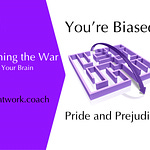I watched a movie recently about a Michelin Star chef, it's called Burnt and the movie is quite good and somewhat realistic, certainly in the way the chefs behave under pressure. It reminded me of my early career in the kitchens and some of the Chef's I had worked with. Superstar Chefs are renowned for screaming vulgarities, throwing tantrums and punishing staff for any wrong-doing, perceived or real. And with sharp knives and live flames around, you learn to quickly obey. As the saying goes, if you can’t stand the heat, get out of the kitchen. In my own experience, chefs use coercive power to achieve what they require, with the excuse that any other form of leadership simply takes too long. So what other sources of power can a leader utilise when they want to motivate others and get them to do things that matter? This week I want to help you understand five different sources of power in the workplace and how you can build a more sustainable source of long-term leadership power and gain influence. People follow powerful people Leadership and power are closely linked even though leadership is NOT about power or position. People follow people who are powerful. And because others follow, the person with power leads. [player] You can Download the Report and Template here But leaders have power for different reasons. Some are powerful because they alone have the ability to hire or fire, others may give you a bonus or a raise. Some are powerful because they can assign you tasks you don't like. Yet, while leaders of this type have formal, official power, their teams are unlikely to be enthusiastic about their approach to leadership, if these are all they rely on. More positively, leaders may have power because they're experts in their fields, or because their team members admire them. People with these types of power don't necessarily have formal leadership roles, but they influence others effectively because of their skills and personal qualities. And when a leadership position opens up, they'll probably be the first to be considered for promotion. Do you recognize these types of power in those around you – or in yourself? And how does power influence the way you work and live your life? Five sources of Power One of the most notable studies on power was conducted by social psychologists John French and Bertram Raven in 1959. They identified five bases of power: Legitimate – Power that comes from the belief that a person has the right to make demands, and expect compliance and obedience from others. Reward – Resulting from one person's ability to compensate another for compliance. Expert – Power that is based on a person's superior skill and knowledge. Referent – The result of a person's perceived attractiveness, worthiness, and right to respect from others. Coercive – Comes from the belief that a person can punish others for noncompliance. When you are aware of these sources of power, you can better understand why you're influenced by someone, and decide whether you want to accept the base of power being used. Recognize your own sources of power. Build your leadership skills by using and developing your own, appropriate sources of power, and for greatest efficacy. The most effective leaders develop and use referent and expert power mainly. To develop your leadership abilities, learn how to build these types of power, so that you can have a positive influence on your colleagues, your team, and your organization. The Five Bases of Power Let's explore French and Raven's bases of power according to these sources. Positional Power Sources Legitimate Power A president, prime minister, or monarch has legitimate power. As does a CEO, a pastor, a policeman or a fire chief. People holding these formal, official positions – or job titles – typically have legitimate power or auhtority. Social hierarchies, cultural norms, and organizational structure all provide the basis for this type of power. But it can be unpredictable and unstable. If yo
Share this post

LA 027: What's the Source of Your Power?
www.joyatwork.coach
LA 027: What's the Source of Your Power?
Jun 02, 2016
Joy@Work Podcast
Helping marketplace leaders #UnStuck their true potential to thrive in life and leadership to build a successful, sustainable business with collaborative, high performance teams and Joy@Work with practical, neuroscience-based AdvantEdge Guides and coaching.
Helping marketplace leaders #UnStuck their true potential to thrive in life and leadership to build a successful, sustainable business with collaborative, high performance teams and Joy@Work with practical, neuroscience-based AdvantEdge Guides and coaching.Listen on
Substack App
RSS Feed
Recent Episodes














LA 027: What's the Source of Your Power?